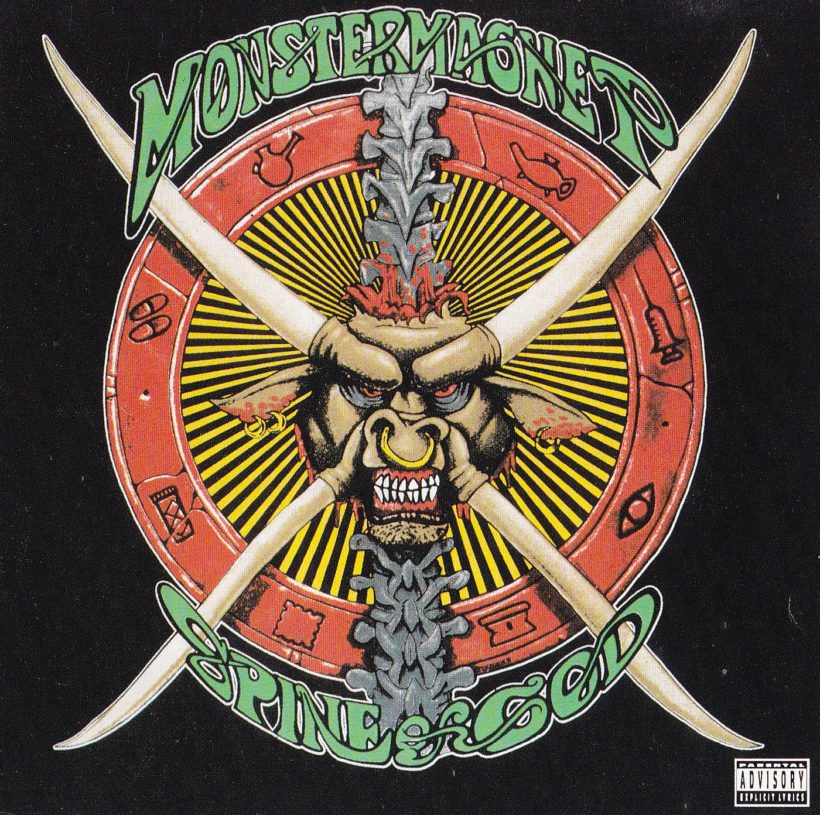
Monster Magnet rightfully found its way into the Decibel Hall of Fame via 1995’s breakthrough album Dopes to Infinity, but in inducting that more than a decade ago we may have inadvertently told the band’s influential saga out of order. 1991’s Spine of God—a sprawling, druggy and, at times, ridiculous/nonsensical stoner rock classic—provides a clearer explanation for the career path that followed and better maps out the path to Dopes. But we’re not inducting SOG because it explains that phenomenon. It is its own phenomenon, and it launched the band on a trajectory that continues today.
Nothing like Spine of God existed in 1991. Nothing. To understand how this miasma of garage rock, psych rock and proto-punk came into existence in Red Bank, NJ, in the early ’90s you have to look at the members’ skillsets, aspirations and influences. Vocalist/guitarist Dave Wyndorf was the oldest and already had years of experience fronting bands a decade previous. Guitarist John McBain was the garage rock devotee, most skilled musically and Wyndorf’s writing foil. Drummer Jon Kleiman and bassist Joe Calandra were vets of the NJ hardcore scene who brought a visceral energy to the songs. By the members’ own telling, the quartet was purposely being reactionary in crafting music on Spine of God that sounded like something from another era, though not any single specific era.
This was Monster Magnet’s first full-length and last to feature McBain. Though lauded upon its release, it quickly picked up even more traction as the rebirth of loud, punk-influenced rock, fostered by the success of Nirvana, Soundgarden, Smashing Pumpkins and others, brought hungry rock fans looking for more guitar-centric bands. However, what Monster Magnet had to offer was distinctly different. Long, hypnotic jams were juxtaposed next to vicious, slashing punk cuts. Spine of God simultaneously gave the finger to a half-dozen different musical scenes at the time. It was impossibly uncool yet presciently cool at the same time in 1991.
It also turned out to be hugely influential to the onslaught of stoner rock/metal bands that drew from its looseness, musical indulgences and bewitching fury. This is where Wyndorf and Co. developed the repertoire of musical moves they perfected on Dopes. Spine of God is Monster Magnet finding its feet under Wyndorf’s direction after original vocalist, Tim Cronin, was ousted. Like any classic album, it had its drama but the results are ultimately unimpeachable.
Got to get more Monster Magnet? To read the entire seven-page story, featuring interviews with all members on Spine of God, purchase the print issue from our store, or digitally via our app for iPhone/iPad or Android.




